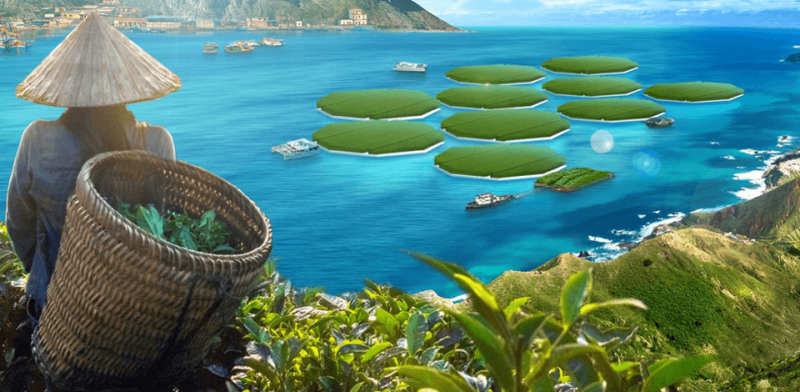Growing rice in the ocean sounds a little whacky, but ocean agriculture is an emerging form of food production that could have some real potential …. Increased demand for food and exploding population levels are pushing innovators to explore areas where agriculture has never gone before.
One crop taking to the sea is rice. A company started by two 24-year-old scientists wants to produce salt-tolerant rice and floating ocean farms by 2021, with small pilot farms by the end of 2020.
…
3.5 billion people rely on rice every day, and with such an enormous impact, people have long been interested in manipulating rice genes to achieve certain goals …. Agrisea …. [wants] to grow rice in the ocean by using gene-editing, which would amplify the expression of genes already found in rice that control salt-tolerance.
…
“Together these genes act in a network, just like they do in nature,” Luke Young, CEO and co-founder of Agrisea said. “We just encourage them along the pathways that nature has formed in plants that can thrive in a salty environment.” The co-founders explained that they could use repeated selective breeding in rice to get the same result, but gene-editing just speeds up the process.































